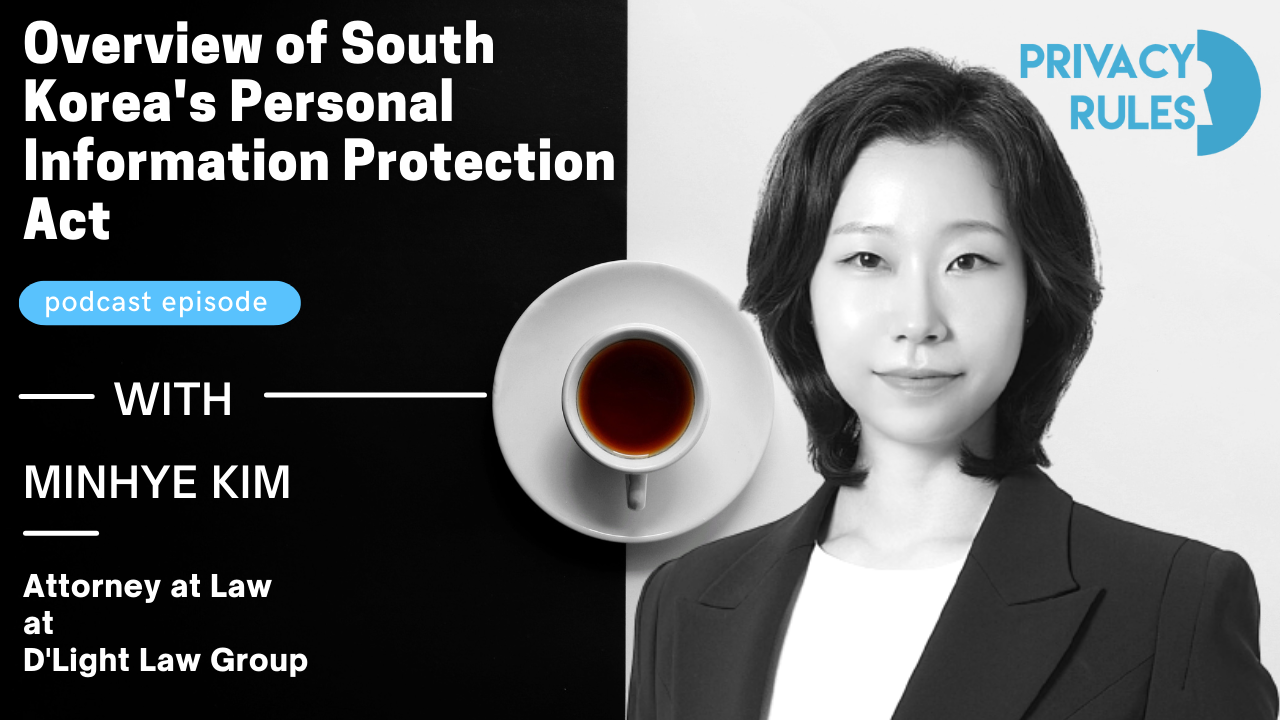In this privacyespresso episode, Privacyrules expert Minhye Kim from the South Korean Law firm DLG Law Corporation discusses the recent amendments to South Korea’s Personal Information Protection Act.
South Korea is amending its Personal Information Protection Act to foster data usage for industry growth, improve personal data protection, and accommodate the rise of artificial intelligence (AI) and the My Data industry.
The amendments, due to take effect in September 2023, include provisions extend to both fixed and mobile image processing devices, permitting use of drone and self-driving vehicle imaging under specific operating standards, as long as “photographing” is indicated clearly to the subjects.
Individuals are now given more control over their personal data, allowing them to request personal information transmission to themselves or specific institutions. Data subjects can also reject totally automated decisions made by AI technologies and request explanations for such decisions.
The amendment relaxes the requirement for individual consent in certain data collection and use cases, aiming to expand personal information use for contract fulfillment and enhance protection of data subjects’ rights. It also accommodates the increasing global transfer of personal data, allowing more instances of international data transfer, while empowering the Personal Information Protection Commission to suspend overseas personal data transfers.
Finally, to eliminate confusion, the revised law applies equally to online and offline businesses, making many special provisions for online businesses into general regulations applicable to all personal information processors.
Watch this privacyespresso episode if you want to learn about the specific provisions of the amendments, including the extension of regulations to image processing devices, individual data control rights, streamlined consent requirements, and the facilitation of international data transfers

